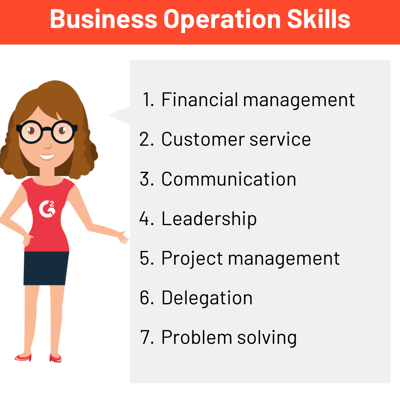You can’t drive more than a few blocks without passing some sort of franchise.
McDonald’s, Planet Fitness, a UPS Store - there have got to be hundreds, if not thousands, of these stores in America. While all of these franchises have a headquarters somewhere, that single unit of people and source of leadership knowledge could not possibly keep all of the storefronts across the country in working order.
That’s why they allow franchisees to do this for them.
What does it mean to be a franchisee?
A franchisee is a small business owner that operates a franchise. For a fee, they are given permission to conduct business activities using a franchisor’s branding, business plan, and other ownership knowledge.
While owning and operating the franchise, a franchisee must abide by certain standards set by the franchisor, which is the individual that gave them permission to operate the business.
Understanding franchisees
Franchising is a common way of doing business. In fact, a new franchise opens every eight minutes of every business day. To better understand franchises and the appeal to aspiring small business owners, let’s take a look at some of the benefits associated with owning one, the relationship they have with the franchisor, and the responsibilities of a franchisee.
Benefits of becoming a franchisee
The franchise situation benefits both the franchisee and the franchisor in different ways. The franchisor gets more geographical reach, further exposing their company's brand name and product or service, not to mention the fees associated with owning a franchise fill their pockets.
The franchisee’s benefits are a bit different.
Own their own business
The first benefit of becoming a franchisee is fulfilling that dream of owning your own business. A lot of people aspire to become a small business owner, but not everyone has the know-how. The beauty of franchises is that you don’t necessarily need to know everything about starting a business. That’s all taken care of by the franchisor. You just need to know how to operate it.
However, there are certain traits necessary to owning and operating a business.

Use a successful business model
If Starbucks’ business plan wasn’t working out, you wouldn’t see them on every block. Another great benefit of owning a franchise is the stress-relieving knowledge that the business plan is already perfected and has already succeeded time and time again.
This also means that when you open your franchise, you will already have a solid customer base waiting to buy your product or service. Sure, there are going to be some franchises that close, but that is usually the fault of the franchisee.
Invest a smaller amount
Certain franchises cost just a fraction of what it does to start, own, and operate a business with an original model. With franchises, there is a lot less financial risk and mistakes to be made, so you won’t be spending wasted money.
More appealing to investors
Even though the initial investment of a franchise is smaller than that of another type of business, owners might still need some help with business funding. That is perfectly fine, mostly because investors are more likely to support franchises than other businesses. The successful business model and already established consumer equals money, and that means a solid return for the investor.
|
Looking for some extra cash to get your franchise going? Check out G2’s highest-rated investment firms.

|
Support from franchisor
Franchisors want to keep their successful business model afloat, so they will offer support to franchisees when needed. They can offer help, training, or other types of support to make sure your particular franchise is flourishing in the markets.
Franchisee-franchisor relationship
Essentially, the franchisee-franchisor relationship is similar to a mentee-mentor relationship. As stated above, the franchisor will offer support in regards to business strategy, operations, hiring, training, advertising, and so on.
However, all of this doesn’t come for free. In exchange for the rights to start a franchise and the guidance that comes along with it, the franchisee must pay an initial franchise fee as well as other ongoing fees.
Franchisee responsibilities
The first responsibility of the franchisee, which they need to complete before they even hold the title, is financial. As stated above, to start a franchise, an initial franchise fee must be paid, as well as ongoing marketing and royalty fees.
The franchisee is required to abide by the business model and marketing standards set in place by the franchisor. The consistency in operations and continuous use of the business model is what helps maintain and even further establish the brand, and therefore the franchise as a whole. While the franchisor will handle high-level reputation management, the franchisee is responsible for upholding the brand’s image at a lower level.
Lastly, and this one may seem obvious, but in order for the arrangement to work, the franchisee must invest the right amount of time and attention to ensure the franchise is a success.
Don’t fear franchising
Starting your own business can be a scary venture. There are plenty of hurdles to jump, people to disappoint, and mistakes to make. Opening your own franchise is a great option for people who have the know-how for operating a business, but not so much about starting one.
Does this interest you? Check out our resource on how to start a franchise to get things going!
 by Mary Clare Novak
by Mary Clare Novak
 by Mary Clare Novak
by Mary Clare Novak
 by Mary Clare Novak
by Mary Clare Novak